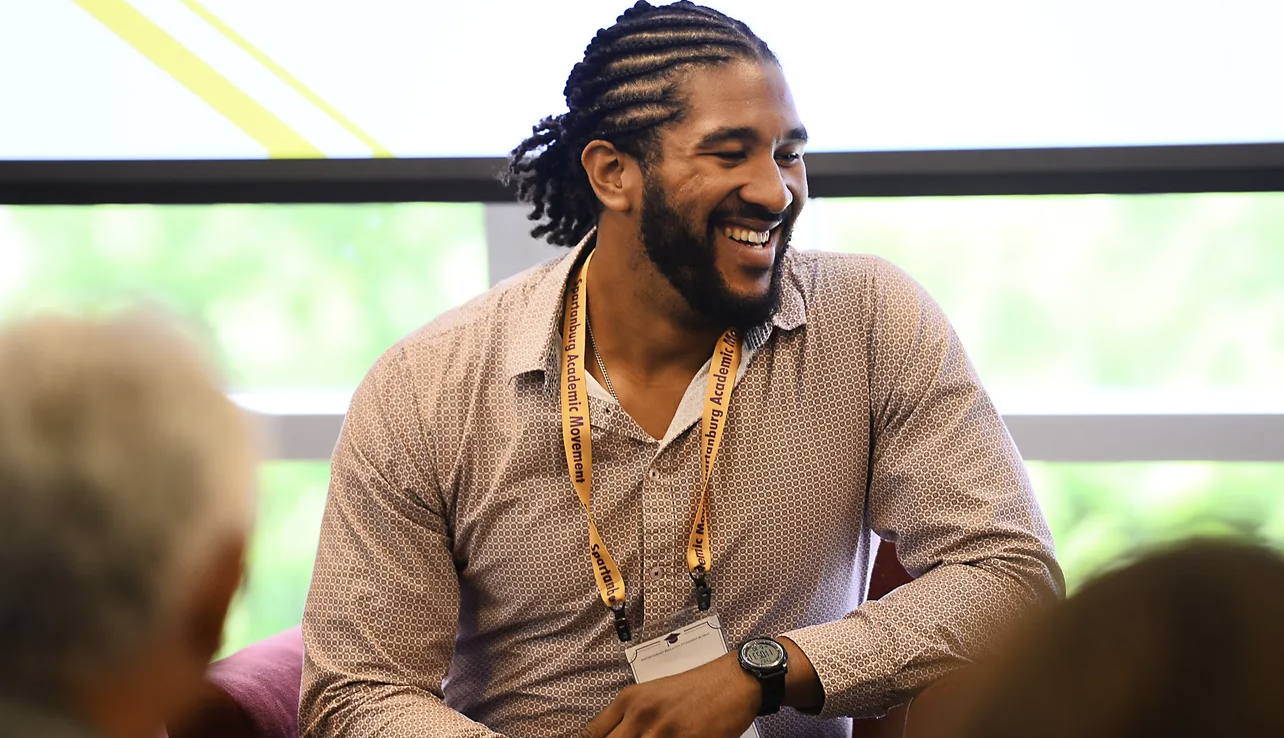Spartanburg Academic Movement has recently launched its Postsecondary Education Attainment Taskforce to identify challenges, and remedies, to college persistence and attainment among traditional students and adults.
We are asking Spartanburg’s higher education institutions to tell us what student challenges or barriers they’ve identified and how they’re already working to keep students engaged and enrolled.
As part of this work, SAM convened nearly 80 community and education leaders for a daylong session to define success around college attainment and how we can craft a joint community action plan to improve our outcomes. We also heard from six students who shared their inspirational – and very different – stories, reminding us of this work’s complexity and importance.
Witney Fisher, Spartanburg Community College’s Dean of Student Success, discusses strategies and challenges in the first blog associated with this work:
Whether working with students at a four year public college, a private college, or at a community college, student retention is always at the heart of student success, and is something we hold as a core value.
But the transition to college is challenging.
Students require support and, as educators, it is important for us to remember the basic needs of our students need to be met. If, for example, students have stressors such as concerns related to paying their bills or childcare, or buying groceries, it will be difficult for them to focus on being a successful college student.
Over the past 20 years of work in higher education, I have categorized student challenges into three clear groups: mental health, financial concerns, and academic preparedness.
According to a recent Healthy Minds survey of Spartanburg Community College students in 2021, the following is of particular note within these three groupings and highlights the continued barriers our students experience as they navigate college.
Mental:
Mental health is a rising concern nationwide and continues to be a top concern on college campuses.
· 28% of respondents reported feeling down, depressed, or hopeless nearly everyday
· 17% of respondents have had thoughts about suicide within the last year
Financial:
SCC is heading into our second year as tuition free. Yet finances continue to play a factor for many when trying to pay for childcare, transportation, and meeting basic household expenses.
· 83% of respondents characterized financial situation as always, often or sometimes stressful
Academic preparedness: As students enter college, there are varying levels of preparedness and understanding of college expectations, especially as we are seeing the impact of Covid-19 on how students learned.
· The percentage of students taking a transitional class (a pre-college level course) doubled from 17.3% to 31.5% from 2019 – 2021.
It is evident our students are facing big challenges and I am confident administrators from other colleges would agree that they are experiencing similar issues within their student populations.
Spartanburg Community College continues to think creatively about how to best utilize our resources in supporting students.
SCC has implemented an early alert software system, Aviso, to help faculty and staff monitor attendance, grades, and to proactively reach out to students in order to help connect them to resources both on and off campus.
This software system has been instrumental in helping provide and connect students to wrap-around services such as childcare support and available funds for book supplies.
Additionally, this software allows us to better communicate between departments when providing student support and break down existing silos across campus.
As we head into the Fall, we are excited to be developing dedicated student Success Coaches, which is a strategy that is proven to increase student retention and completion rates.
Students who receive success coaching participate in activities to develop clear vision and goals, time management skills, and study skills.
Success coaches get to know the needs and challenges of their students and help make connections with necessary resources.
Additionally, we are in the midst of developing a partnership with the Department of Mental Health to add two mental health counselors on our campus.
This added support is critical for our students and how we are able to support them within our SCC community.
There is no easy or fast answer to increasing retention. However, it is evident that increasing our retention will only happen if we consider and offer resources and services beyond the classroom with an intentional and coordinated, college-wide approach.
Witney Fisher
Witney is a Spartanburg native and a graduate of Rhodes College with a Bachelor’s degree in Biology and a Master’s degree in higher education administration from USC-Columbia. She spent 11 years at Converse College developing a first-year experience program and creating student success strategies. In January 2018, Witney accepted a position at the Spartanburg Community College as the Executive Director of the Downtown Campus. In fall of 2021, Witney moved into the role of Dean of Student Success where she has begun developing a comprehensive approach to student success at the community college. She loves helping students realize their full potential and achieve their personal and professional goals.






